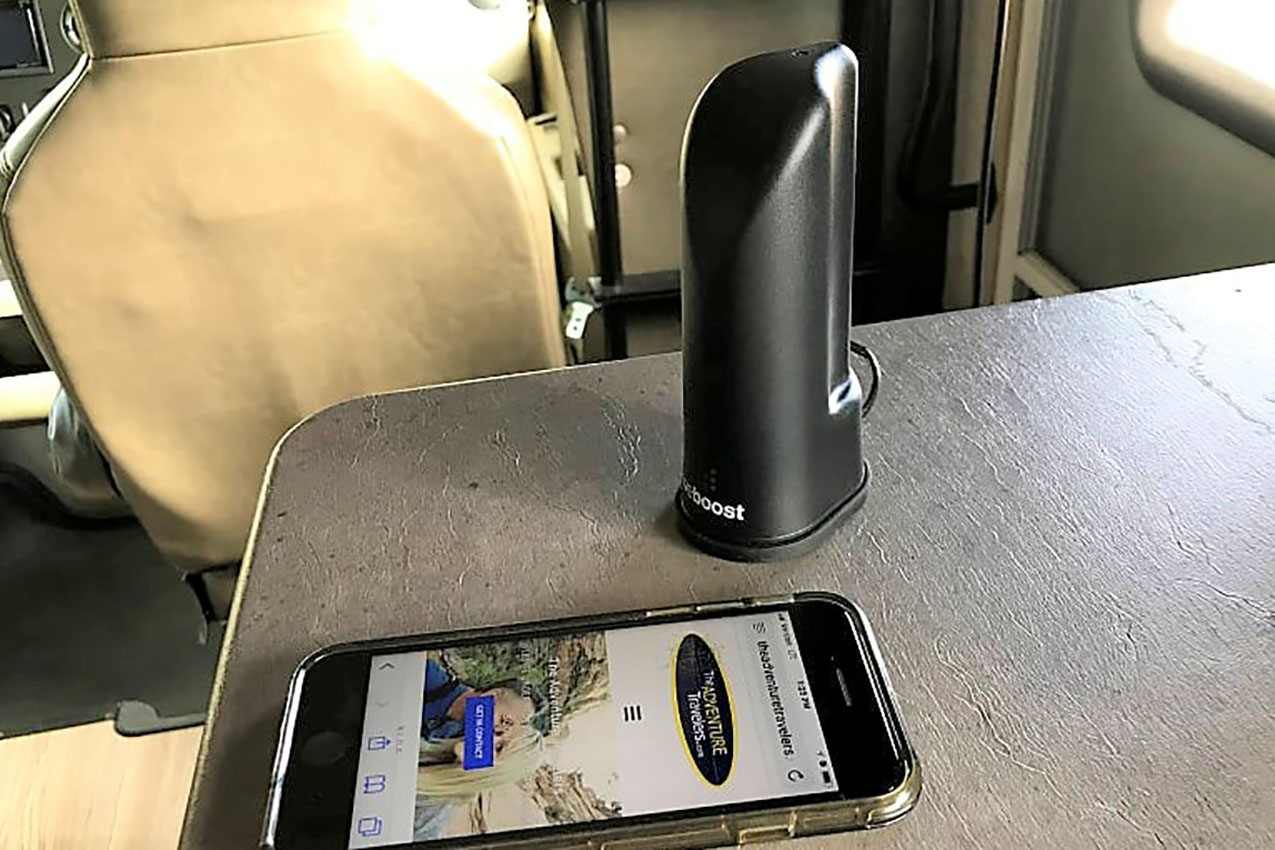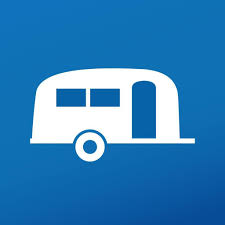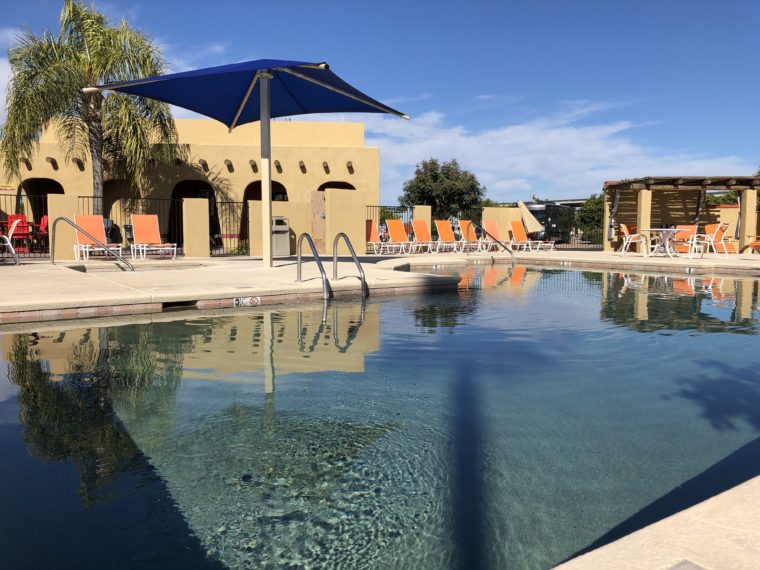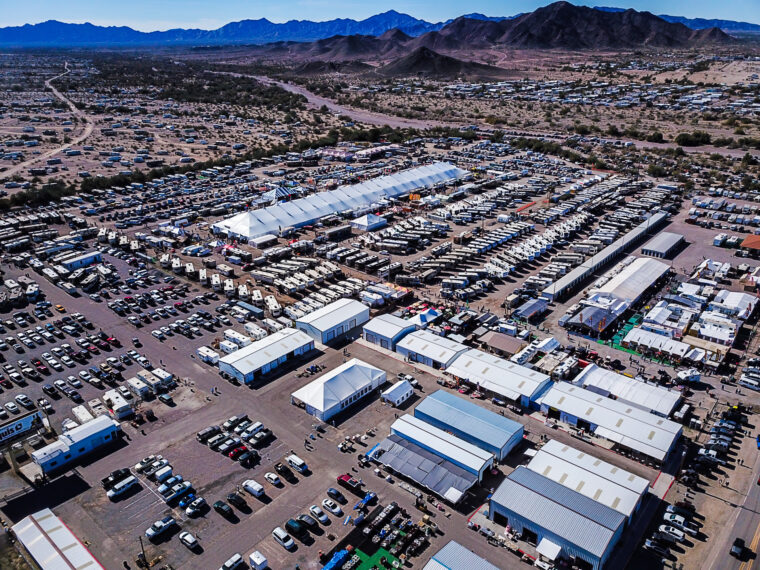Working on the road can add an element of freedom to your work-life balance, but it can also add a few new stressors, like learning how to power your devices, finding the fastest internet speeds, and booking a quiet corner of the campground so that you can complete your tasks in peace.
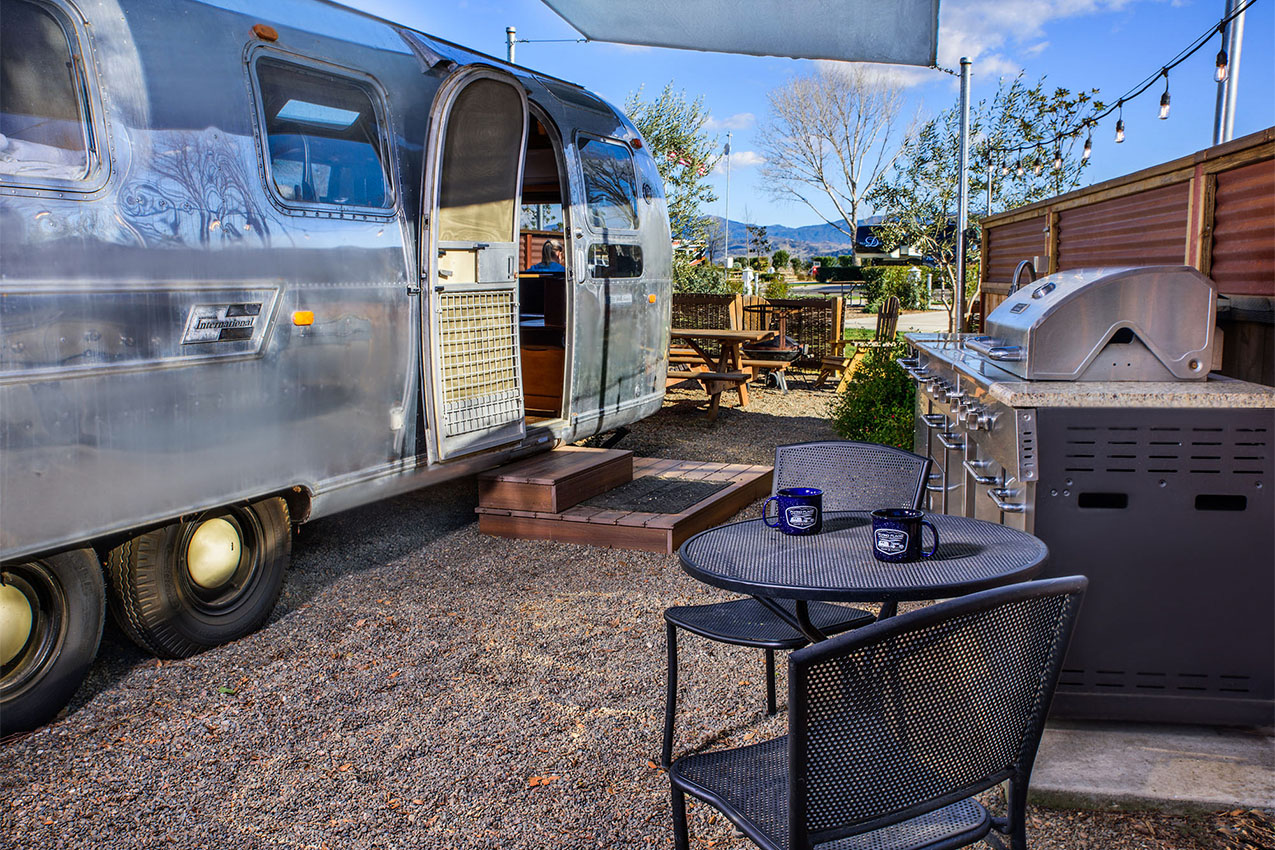
Flying Flags RV Resort | Buellton, CA – Photo by: Joe G.
One of the most valuable pieces of advice for anyone who wants to work while on the road is to both plan ahead and be prepared for things not to pan out quite as you anticipated. There will always need to be a level of adaptability and enough flexibility in your schedule to allow for days when everything seems to go wrong.
Get a jump start on a great workday by booking campsites well suited for the daily grind. Here are five things to look for when booking a campsite for remote work.
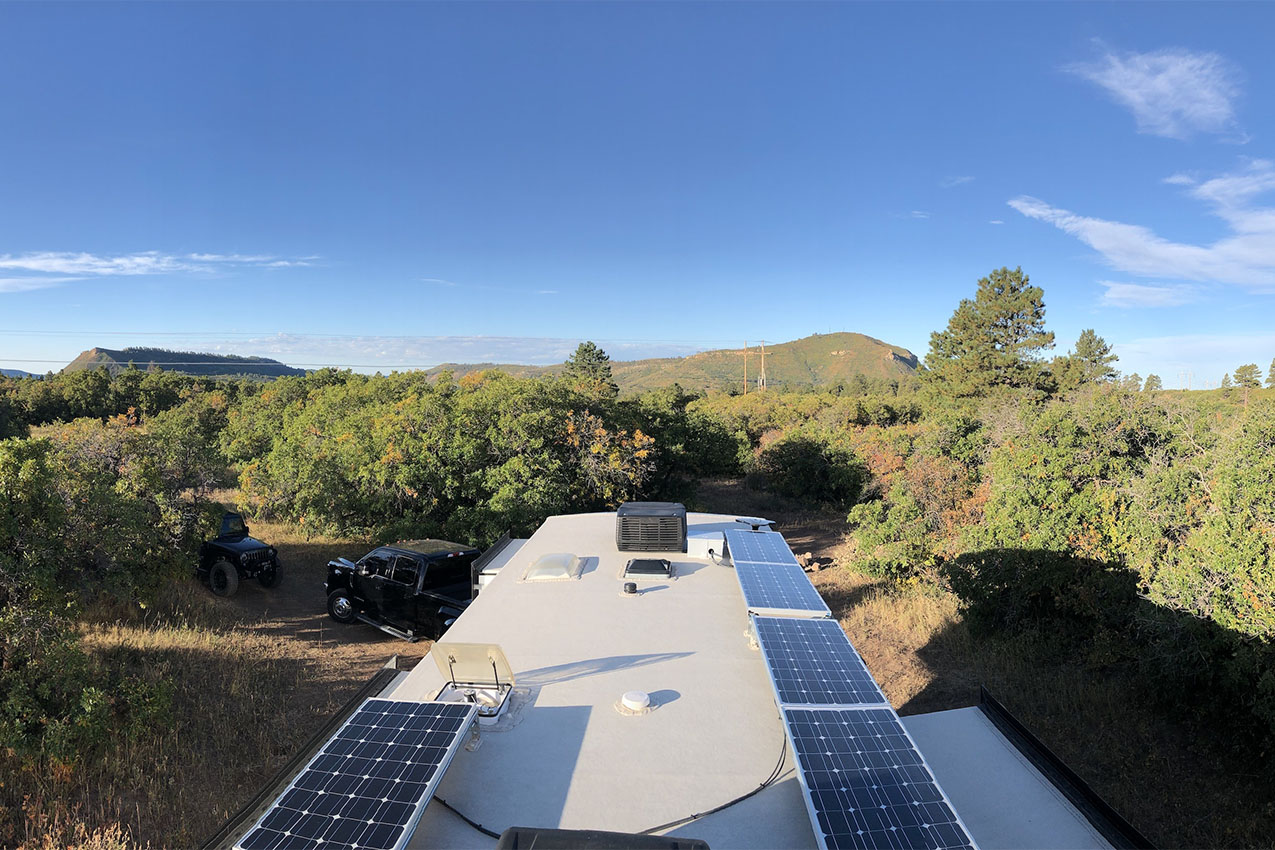
Madden Peak Road Dispersed Camping | Hesperus, CO – Photo by: Blake & Chelsea
1. Electrical Hookups or a Reliable Off the Grid Setup
There are two things that many remote workers absolutely need—electricity and the internet.
Most RVers get electricity one of three ways:
- Electrical hookups at a campground
- A solar setup
- A generator
If choosing to camp at a campground with hookups, electricity is as easy as plugging in your RV and firing up your devices. We recommend checking with the campground to know whether they charge for electricity as part of your overnight rate or if they charge separately by the kWh used. If the latter, keep an eye on your overall usage, so you aren’t surprised by the bill at the end of your stay.
If you have an off-the-grid setup like a solar and battery system or a generator, make sure that they are big enough to handle your average usage and, in the case of a solar setup, have enough battery storage for cloudy or rainy days.
2. Wi-Fi or Strong Cell Reception
More and more private and public campgrounds offer Wi-Fi these days, and for the remote worker, this can be a great option instead of, or in addition to, relying on cellular data from your phone or hotspot. Campground Wi-Fi is convenient and often included in the price of your stay, but it’s important to keep in mind that the speed and strength of the signal will vary greatly from park to park.
Try to find a campsite close to the router if you can. If you’re calling ahead, or even when you’re checking in, ask the campground host where the best site is for strong Wi-Fi. Most hosts are extremely accomodating when you inquire about these things. I’ve even had a campground host offer to let me work off their office Wi-Fi because it was a better connection!
If you’re in a campground where Wi-Fi isn’t an option, or you’re uncomfortable working on a public connection (always use a VPN!), find out which sites have the best cell reception so you can work off of your hotspot. This is another great question for the camp host, as they will likely know where in the campground has better service.
When you’re boondocking, use Campendium to check reviews and map overlays to find the best places to camp that have reliable cell phone coverage. You might also consider investing in a WeBoost to boost your cell signal and stretch your boondocking range.
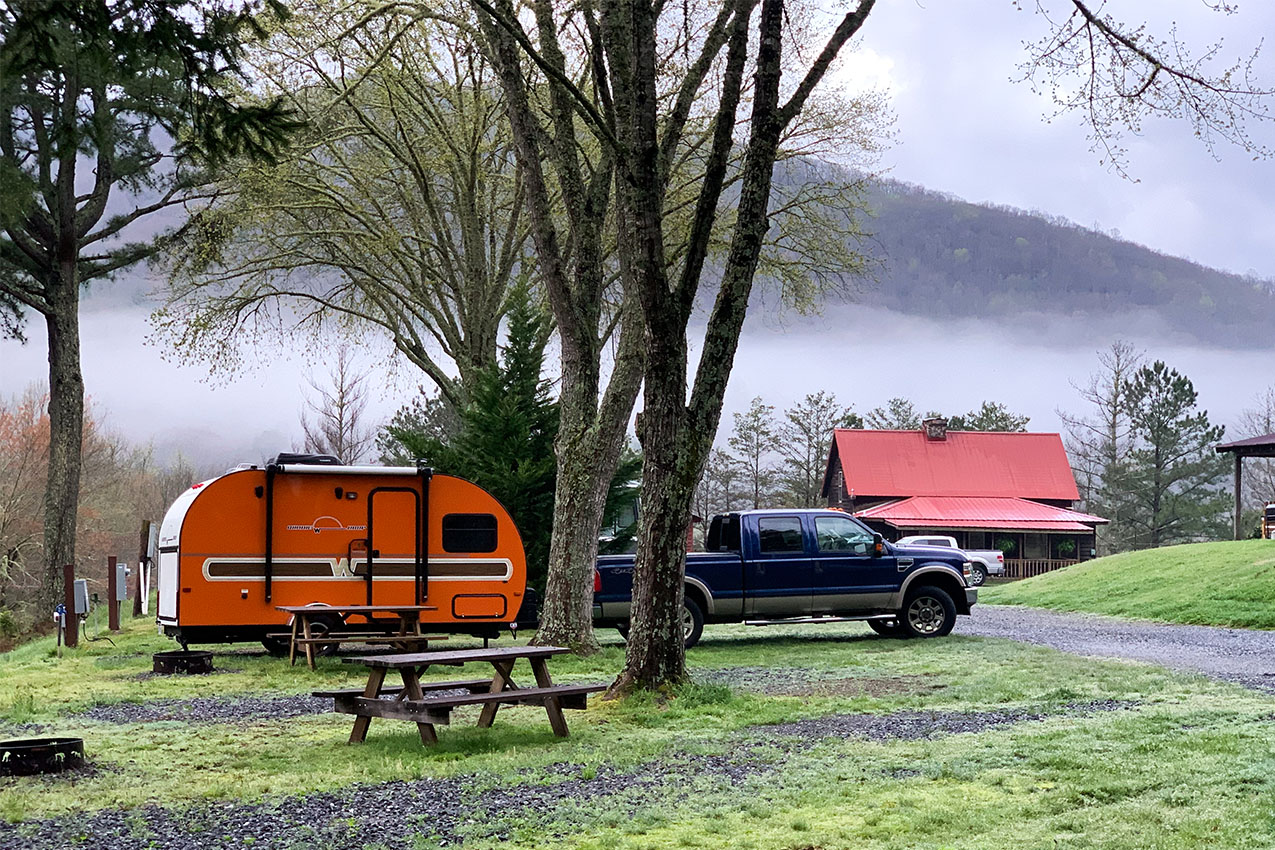
Mountain View Campground | Hiawassee, GA – Photo by: John
3. Choose a Quiet, Private Campsite
In addition to electricity and strong internet, the environment of your campsite can influence your work experience. Many developed campgrounds have services and amenities that are fun to use but less fun to work near. These include swimming pools, playgrounds, and dog parks. Choose your site carefully to ensure a quieter experience that’s more conducive to logging in for the day.
Come prepared with your office setup and privacy tools like noise-canceling headphones and a shade screen for your computer.
If you like to mix up your workspace, look for campsites with a shaded picnic table or enough room to pull out your awning. Avoid campgrounds with tight spacing—having a neighbor too close can be distracting and noisy.
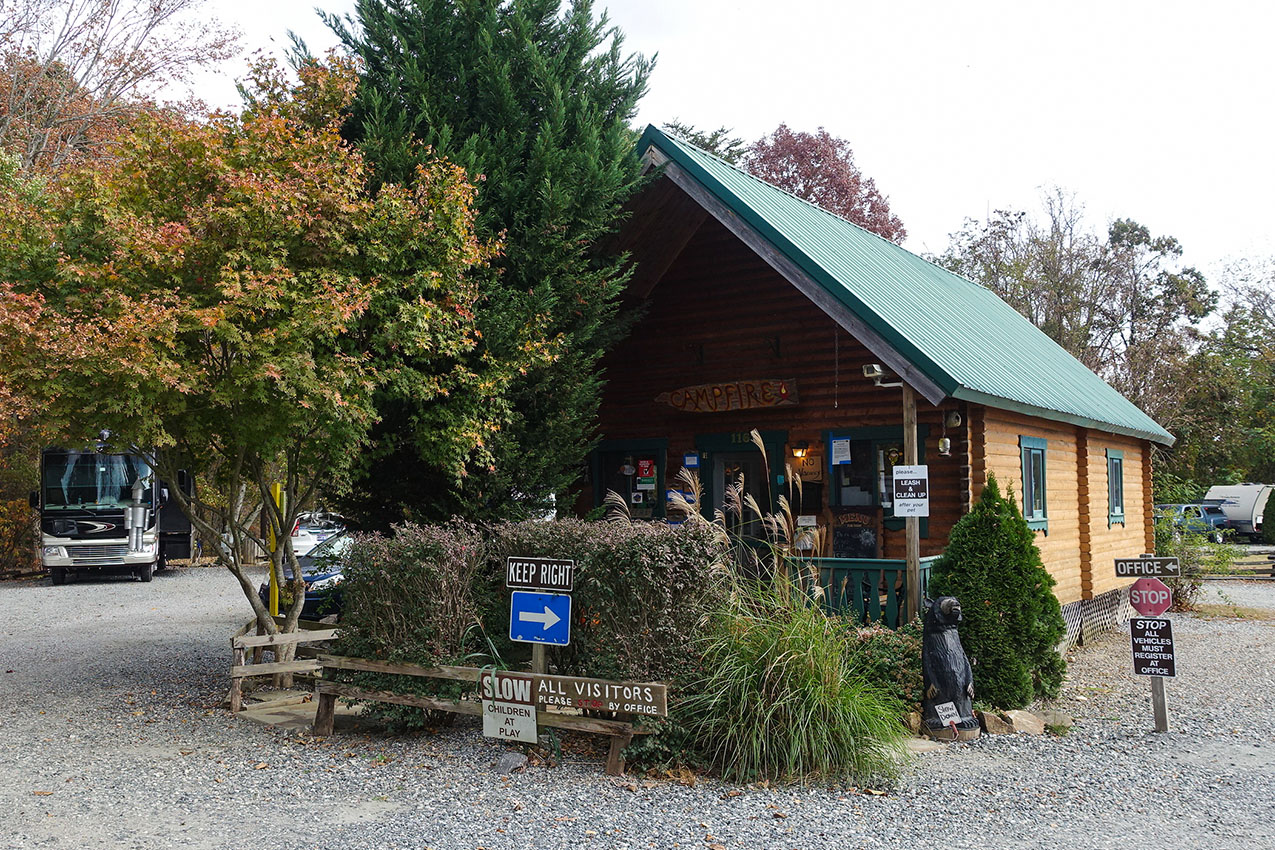
Campfire Lodgings | Asheville, NC
4. Look for Flexible Checkout Times
While this won’t make or break your work experience, having a few extra hours in the morning or early afternoon to get things done is helpful when you are working on the road. Once you’ve found a camp space that provides a productive and easy place to work, take full advantage of the setup for as long as you can.
Look for campsites that either have late or flexible checkout times. That way, you can focus on work in the morning before you have to pack up and hit the road again.
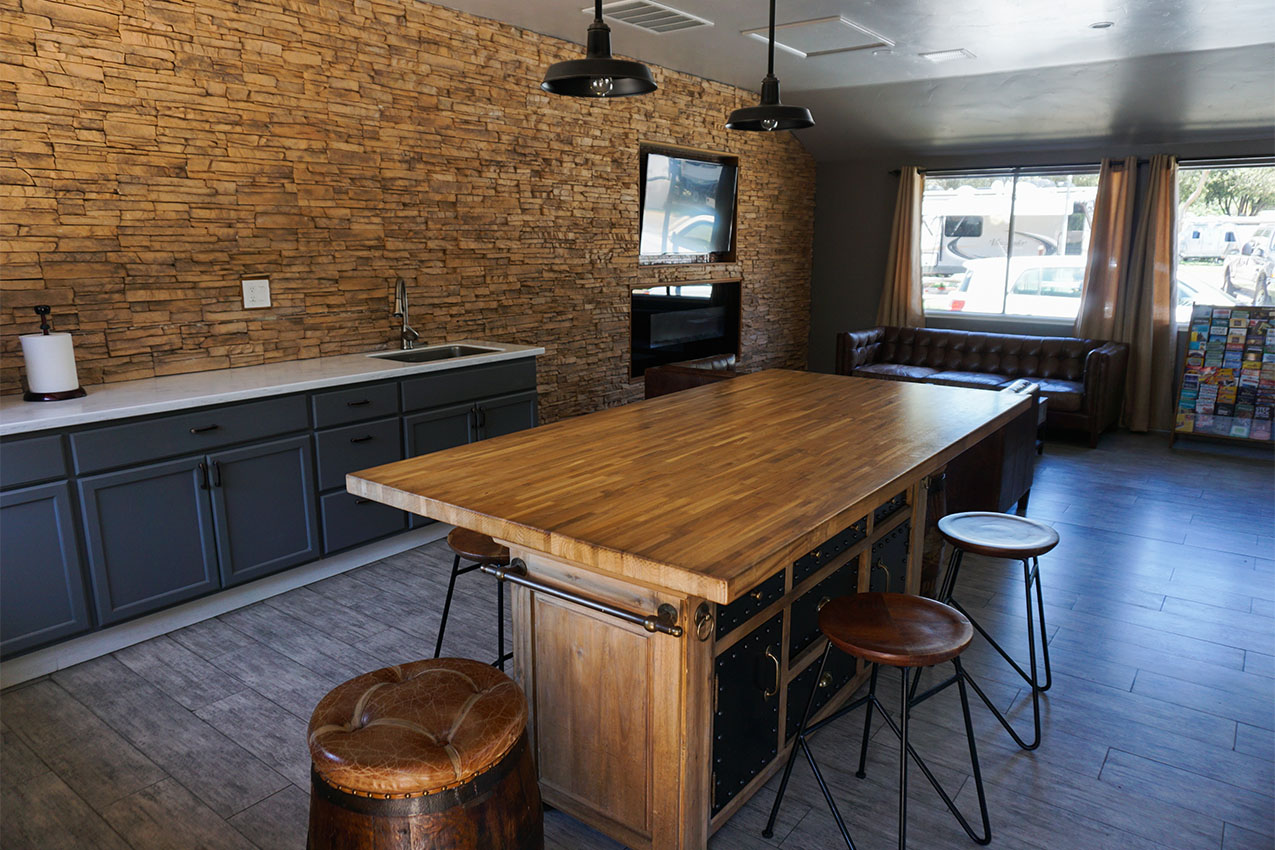
Flying Flags RV Resort | Buellton, CA – Photo by: Follow Your Detour
5. Seek Out Shared Workspaces
Some campgrounds offer common areas like recreation halls and cafes that are conducive to working. They’ll often have electrical outlets and Wi-Fi access. While not particularly great for conference calls, these spaces can be handy if you need a break from your camper or if a new location will help you hunker down and get some work done.
If you’re close to a town, you might also decide to work at the local library or coffeehouse or buy a day pass to a nearby coworking space.
What amenities or environment do you look for in a work-friendly campsite? Leave your best tips in the comments!
